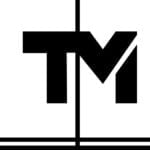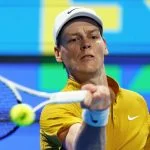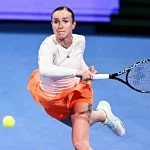“We’re writing the history of UTS, which I hope will be the history of our sport”
The UTS has been well-received by players and fans alike. In an exclusive interview with Tennis Majors, Patrick Mouratoglou, the brains behind the innovative competition, reflects on the successes and lessons learned from the first edition of the event and discusses his hopes for the future.
 Patrick Mouratoglou, UTS 2020
Patrick Mouratoglou, UTS 2020
Tennis Majors: How happy have you been with the first edition of UTS?
Patrick Mouratoglou: I’m very happy. It was a concept, then the concept becomes reality and most of the time there is a huge difference between what you had imagined and the reality. In this case not so much. We had a lot of question marks. Will the players like the format? Will they enjoy playing and doing things on a court that they usually don’t, like having an interview during the changeover, or coaching during the match? We didn’t know how players would deal with it. They have loved it. They have really done it 100 percent and they have said that they would like to play UTS again in the future, as soon as possible. So that was a very positive feedback. Of course there are a lot of things we can improve and we want to but for a first event, it was really promising and the whole point was to build what tennis can become in the future.
TM: What are the differences between what you imagined and what took place?
PM: I think there is not much difference between the concept and the reality of it. That’s what’s great about it. The more time passes, the more the players open up. It was very difficult for them at the very start, because it’s so different from what they’ve been experiencing on Tour for the last 10 years, almost 20 years for some. So they took a lot of habits and the habit was to close down, not to show emotion, not to share anything with anyone. So it was really a shock at the start. But you could see they’ve tried to do it and enjoyed doing it. It was some kind of a liberation for some of them. For others you can see that they’re going further and further, match after match. The whole experience for the players is just to be human, to accept your emotions. So it’s very natural, I think. When I see (Richard) Gasquet, in his last match, hit the umpire’s chair with his foot, which is something that I’ve never seen him do in his whole career… I’m not saying it’s good or bad. I feel like : “finally he is getting it out of his system and that’s great.”
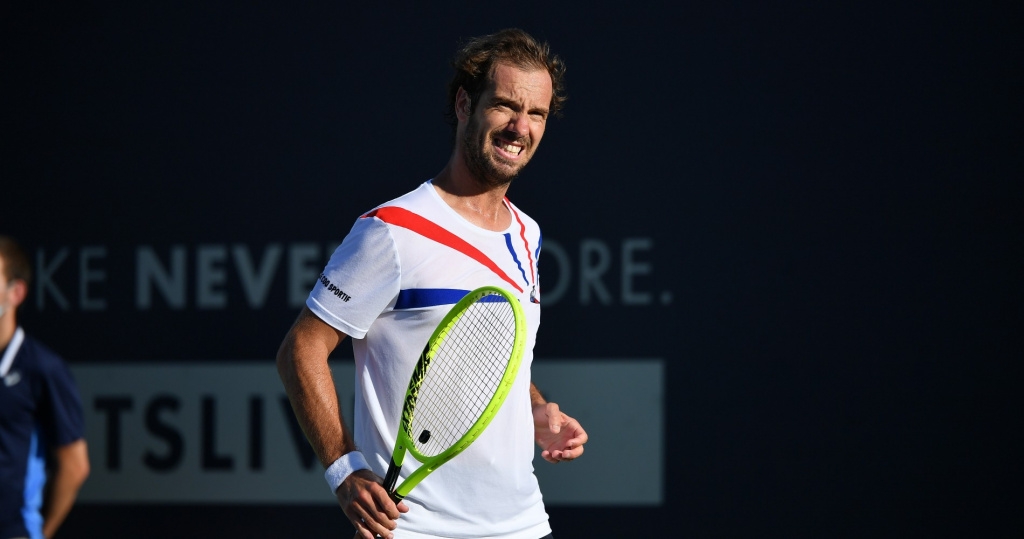
TM: One of your goals was to redefine tennis. How do you feel you were able to do that?
PM: One of the goals is to set up what tennis could become in the future, considering how the world is now and how people will consume sports in the future. We see that their attention span is much shorter than before, people don’t have time. You have to be able to deliver something really intense in terms of content, emotion, quality, in a short period of time. So I think we delivered on this promise. The lasting question is even: “Isn’t it still too long, one hour?” But it’s great to know, for the players and for the fans, when it starts and when it ends. It’s a lot of emotions in a short period of time, which was the goal. So I think this sets up a new way to consume tennis.
TM: Is it the perfect format?
PM: Nobody from UTS said that we would show something that is going to be the tennis of the future. We said we would show something different. We know it’s not perfect. But it’s already very interesting. A lot of figures make us feel we are on the right track. For example, our fan base is 30 years old on average, compared to tennis fan base which is 61 years old. This is a great sign. 50 percent of our fans are not tennis fans and that was the point, to bring new fans on board, people who are not watching tennis, because this product may be more appealing to them than classical tennis. Those two figures are very encouraging. We just need to keep working to really define what exactly should be UTS.
Mouratoglou : “The fans have the answer, we don’t”
TM: Why do you think that you should make the matches even shorter than they are?
PM: I don’t know what is the right format length-wise. I just feel it’s still too long. I don’t want any moment where people get bored. I don’t think anyone can afford, when you want to showcase a sport, to lose the attention of the people. So maybe, maybe, the middle of the match, we could get rid of it, and maybe the right format is 30 minutes rather than one hour. To have more matches, more players, different players, or players can play two matches per day. Everything’s possible and that’s what’s great. We started with a white page and we’re writing the history of UTS, which I hope will be the history of our sport in the future. The only way to know is to experiment because the fans have the answer, we don’t.
TM: We can see that the top players are at the top of the UTS rankings. Are you looking to give better chances for the lower-ranked players to have the chance to be at the top?
PM: It has to be fair. You can’t help other players to be better than players who are better than them. This wouldn’t be right. What we still want to do is to make sure there is always suspense. One way was to use the UTS cards to give advantages to the weaker player. The other way is to have cards, you know that any time a player uses one it’s active for two points, so you keep the attention. Maybe we can go further in that. But we want suspense, we don’t want to fake the results and give too many advantages to players who are lower-ranked and have them be better because you help them. This wouldn’t be right. At the end the best players have to win. Not all the time. But if player A faces this player B 10 times, he’s going to win nine times because he is much better. I think it’s fair.
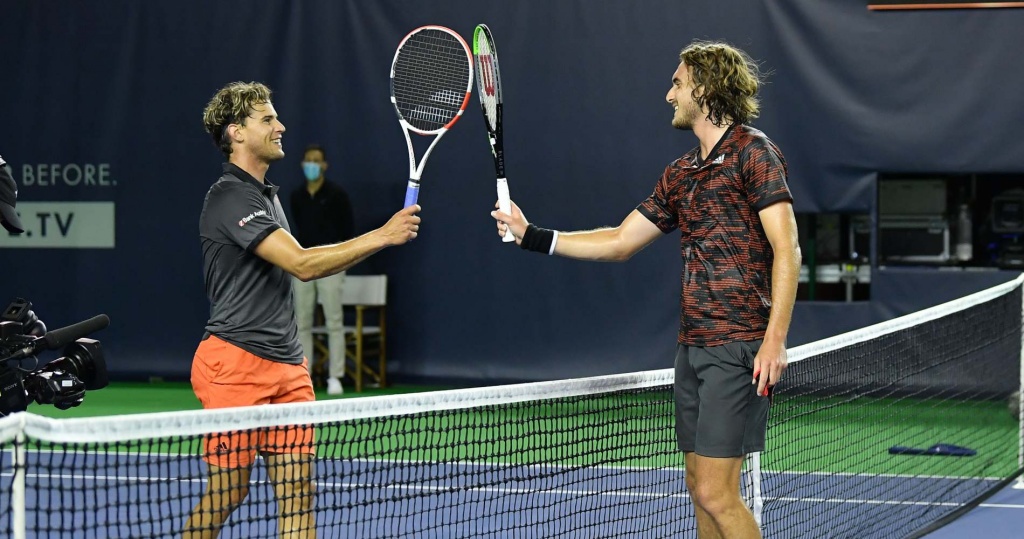
TM: For fans watching, what are the best moments?
I think the best moments are definitely the interviews at the changeovers, because I think the commentators did a great job interviewing players. It was interesting because the players would say how they feel at this moment. You get into their mind and that’s one of the goals. I think the coaching is always fun because there is an interaction. With UTS, a tennis match is not only two guys hitting a tennis ball and one of them is going to win. There are a lot of side stories and you have different actors. You have the two players, but you also have the chair umpire, the coaches and the commentators: all these people are part of the show. It makes it much richer and more interactive. All the interactions were great.
TM: What are your top 3 highlights?
PM: Definitely Benoit Paire, when he was being funny, not taking himself seriously. I think this is great, something you don’t see in tennis. It’s too serious. Of course you want to win but you have to be able so to put on a show. I remember Novak Djokovic at the start of his career when he was in the locker room before the matches making fun of the other players or imitating them. Just before entering the court we had this at UTS with Benoît. Novak completely stopped to do that but Benoît did it. His pre-match warm-up was extremely funny, also making fun of himself. So that was great. I loved it.
What he intends to do to “The Wall” 👇
The @benoitpaire entertainment started before he event got on the court tonight 😂#UTShowdown pic.twitter.com/2QEyYX7p7u
— UTS | Ultimate Tennis Showdown (@UTShowdown) July 5, 2020
I have loved also the interaction between Corentin Moutet and Stefanos (Tsitsipas), a bit of friction, which is great too. I like that Corentin was able to express his frustration. I’m not saying he is right or wrong but he was being authentic. I love that Stef defended his father (Apostolos). You never see these things all year long on the tennis tour. So this is different. And I would say some moments also of great tennis that we’ve had, because we also love tennis, of course.
TM: Do you know how many people watched UTS?
PM: We don’t know yet how many people watched UTS but for sure, millions of people. We just have had the figures of one channel on one weekend and it was already more than one million. We’re in 100 countries all over the planet. We have had now five weekends, so several millions. I don’t know the exact figure, but we’re going to get them soon.
Mouratoglou: “Nothing bad about being frustrated”
TM: How was the feedback?
PM: I think there are two different experiences; the experience on TV and the experience on our OTT platform. I think our commentators did a great job at giving more energy and more entertainment. On TV, you don’t have the interview during changeovers because you have a commercial, and it’s such a big part of the show. So I think you have two different experiences. The feedback is great overall. We brought some new people to tennis, which is great too and we also received messages like: “oh, my grandmother is 82 and she loves UTS”, which is fine as well. But I loved that a lot of people told me: “my kids love it.
TM: Players have adapted to be more free on the court. Were they afraid at first?
PM: I know that it was a challenge for them, I think they felt it like that. But I like that they didn’t overplay, nobody over-reacted. Everybody was being himself. We saw maybe a different side of them because they felt more free to express their feelings. I think they liked it. Even a guy like Richard (Gasquet), who is known to be very calm on the court and not extreme in his reactions, I think he said it: “it’s so much better to be able to express your frustration when you have some'” At the end of the day, we’re all humans and we all have emotion that define us. We just express our emotions in a different way because we have different personalities. Nothing bad about being frustrated. It’s life. Who’s not frustrated in life?
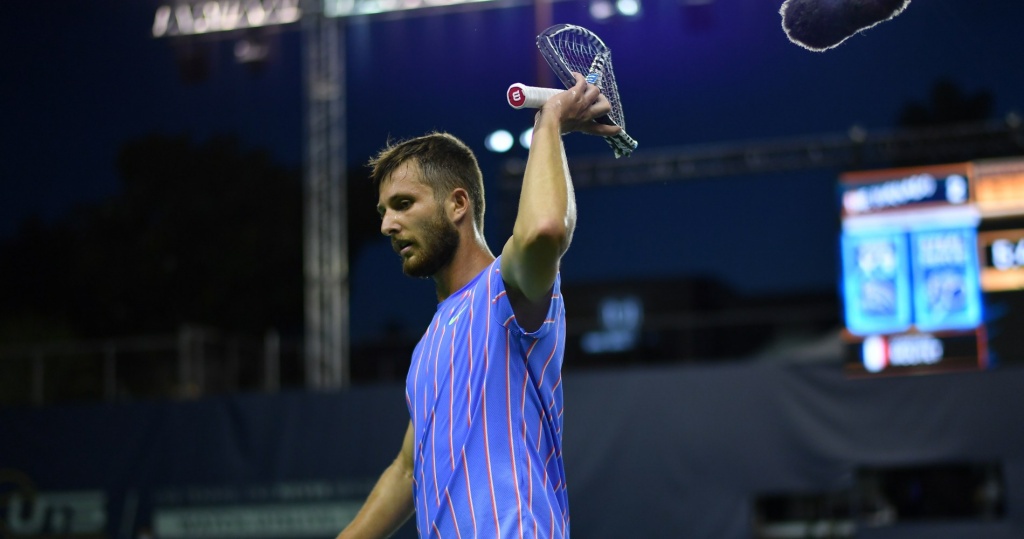
TM : Do they share your belief that tennis needs to be redefined?
PM: I don’t know if the players think that tennis needs to be redefined or not. There are a lot of things that they’ve really loved at UTS that they don’t have the rest of the year. I don’t know if they think about the future of tennis because they’re focused on themselves and how to win, that’s completely normal. But when I explain to them the situation they say: “oh well, we have to do something”. Everybody understands that. The whole tennis industry knows that we need to do something, because if we don’t, we’ll be in trouble. Very soon. The players love tennis the way it is, I love tennis the way it is. The whole point is to have two different levels of tennis. One tennis for the core fans and one tennis to bring new fans on board. Those two tennis have to live next to each other and feed each other for the good of tennis, to make the pie grow, with the number of fans and the sponsors. If you only have people over 61 years old who watch tennis – not only, but mostly – you have only one type of sponsors. If you’re able to bring young fans on board, a lot of other sponsors are going to come. So the whole ecosystem is gonna be a win-win situation.
TM: Have you spoken to the ATP and WTA about the future of UTS?
PM: I have spoken to the WTA about the future of tennis, not with the ATP yet. The ATP has a lot of problems to solve. I know the situation is difficult. There is a new CEO, a new president (Andrea Gaudenzi), with a lot of new ideas. Plus there is the Covid-19 issue. The calendar has to be reshaped. They don’t know what the calendar is going to look like in 2021. There are short-term problems that they have to deal with and I don’t think that UTS is a priority, which is something I completely understand. But I’m ready, I’m open. We need to discuss at some point. When they’ll be ready I’ll be ready.
TM: And the WTA?
PM: Yes. We spoke about the future. They’ve proposed also some ideas. So they’re being very, very positive. But WTA has its own problems also. Some are common with ATP because the Covid-19 crisis has a lot of consequences on tennis. There is also this idea to merge ATP and WTA. They have a lot to deal with. But we’re discussing and that’s the best thing we can do for now. What is important is that UTS continues to grow.
Mouratoglou: “UTS is going to exist because there is a need for UTS”
TM: Do you need and want a crowd?
Yes, of course. It’s a big part of sport to play in front of a crowd. It’s more exciting for the players. It’s more electrifying for the show. So definitely we want UTS to be played in front of a lot of people but for the moment we’re in a special situation. I think we dealt with it really well. I don’t think we had this feeling of a sad show in front of nobody. We found tricks to make it still be very fun. That’s the only thing we can do for the moment. But in the future, we definitely want a crowd.
TM: How might the rules evolve in future?
Maybe we’ll do a few tiny changes but UTS2 is going to take place really close to UTS1, we don’t have a lot of time to go through major changes. There will be adjustments. After UTS, we will have to take a break and really redefine the whole concept. Maybe we’re going to keep most of it, I’m not saying we’re going to change everything. But we need time, to bring all the feedback, to think, to sit down altogether, everyone has to bring his own ideas. I want to bring in the sponsors, the broadcasters, the fans, which are the most important to me, the players also. We had so much feedback but we need to put all this together and have nothing to deal with in the short term to take the right decisions.
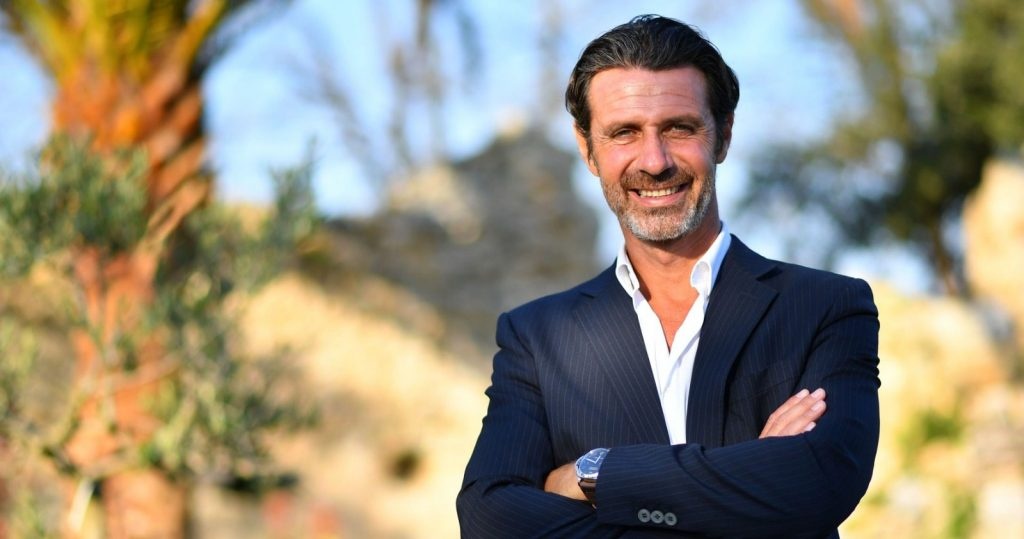
TM: Let’s say in 2021, the Tour comes back as usual. Can the UTS exist alongside it?
PM: UTS is going to exist because there is a need for UTS. There are UTS fans, the players want to play UTS. We’re going to fit in. As you know, we play on weekends. That was a choice from day one which I think is a winning choice. So when you play on weekends, everything’s possible.
TM: Did some matches lack momentum at times?
PM: I think a lot of matches were interesting, but some matches were too one-sided. This is the role of the cards to make anything happen at any time. So this is definitely something that we can improve, also by the way we’re counting the points. It’s not perfect, of course. We’re going to address that.
TM: What was the most challenging thing you had to address as co-founder and chairman of UTS?
PM: Definitely the technology. We redefined the whole technology about tennis, especially for the chair umpires, because all the rules are different. A lot of the challenges were to help players at any time and get all the information they need to take the right decisions. We had a lot of technical issues and it’s still not 100 percent solved. I think the chair umpires have done an incredible job, because it’s extremely stressful, to do something so different from what they do all year long on the ATP and WTA Tours. You can’t anticipate all the situations, so they had to deal with the unknown many times. The players are very smart and they know how to use it when you don’t know what to do. They had to deal also with the technology that was not responding some times and they couldn’t panic. You’re live on 80 channels all over the planet, the technology is breaking down and the players are taking advantage of it, complaining to you. You have to stay calm and you have to find solutions.
TM: We’ve seen some players enjoying the interviews and others like Stefanos, denying coaching from his father. Do you think that you need to address those things?
PM: No, we don’t need to address when a player refuses coaching, it is great. That’s what we want. We want interaction. We want emotion. We want authenticity. So he doesn’t want to be coached, he says no – he’s not the only one who said no actually. We had also Corentin. He complained to his coach that it was not the right moment, he was so angry. Great. That’s emotions again. We’re not trying to do something that is un-authentic/perfect. I don’t want that. I hate that. I don’t want to have prototypes of players. What is interesting is to have a lot of different personalities. But if some players love UTS and want to talk about UTS, they want to be ambassadors of UTS, I’ll be more than happy. But there is not one UTS prototype. Some have talked highly of UTS and promoted UTS naturally, because they like it. And I think that’s the best because again this is authentic.
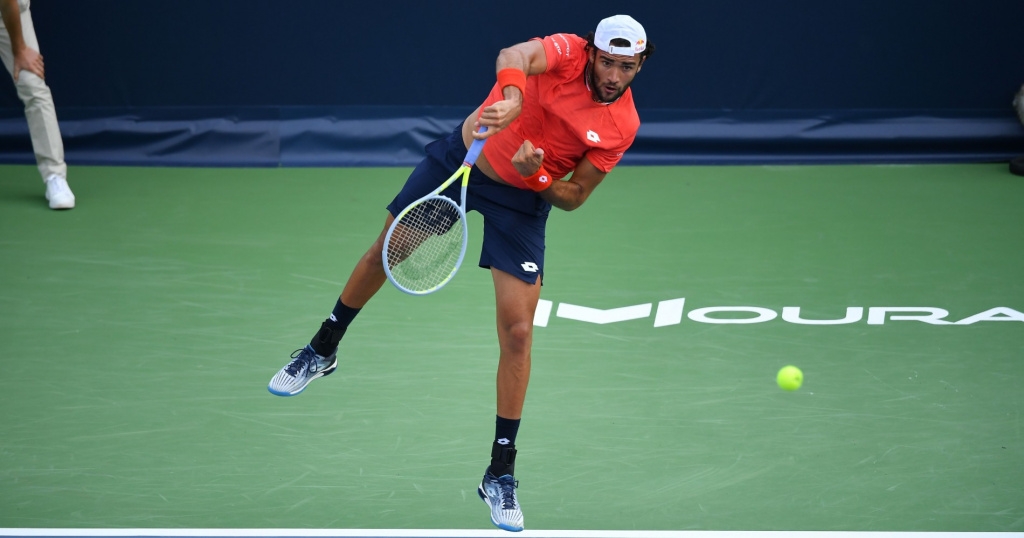
TM: Some players now call each other by his nickname. Should we go even further with that?
PM: I like the nicknames. It’s more modern, it’s more fun, it’s more video game-driven, and I think we should go much further there. I think we have to show our differences. We don’t have to wait for the fans to come, we have to go get them. This is one way. I know that at the start some people criticised it, saying it is too much. But I think it’s also creating personalities. They all have their personality, their qualities as tennis players. The nicknames are here to just highlight that and identify the players even better. It’s very important to identify who is who.
TM: When will women be part of the UTS?
PM: I don’t know yet when women will be part of UTS. It’s not a simple thing. I definitely want women to take part of it as much as men. It just doubles the whole infrastructure, organisation. And at this point, we’re not able to do it, so I cannot answer that question. But the only thing I can say is that I want women to take part in UTS.
- Read more: Patrick Mouratoglou confirms UTS2 will come soon
- Read more: Serena is ready for the US Open but Mouratoglou questions if it can take place

